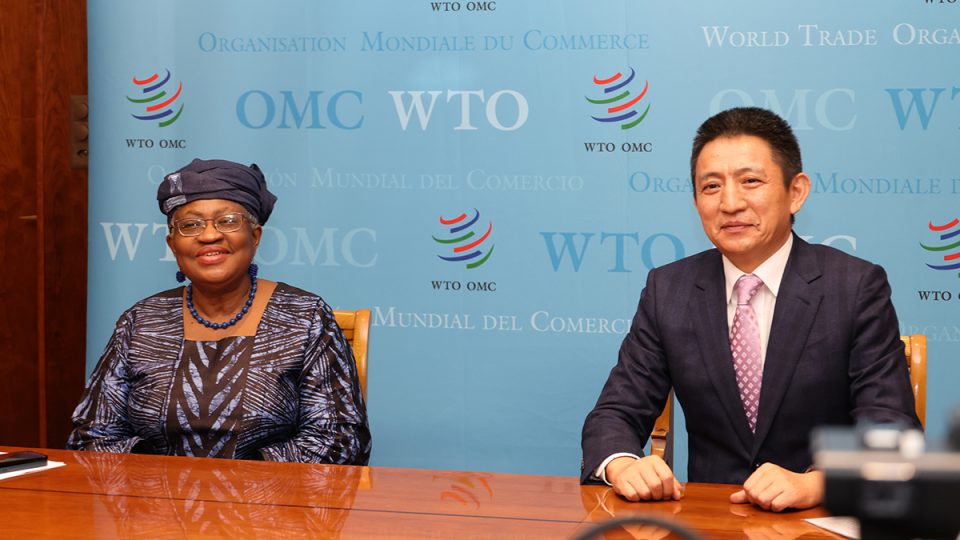
The debate over China and its ‘developing’ nation status at WTO
Beijing is appropriating benefits that ought to go to poorer economies, argue India, the US and other countries

Last month, China completed 20 years at the World Trade Organisation. After 15 years of keenly contested accession negotiations, it joined the global body on December 11, 2001, becoming its 143rd member.
It turned out to be one of the best economic decisions taken by China, for it is now the world’s largest economy in purchasing power parity terms, the second largest measured at market exchange rates, and the largest trading nation, according to the WTO. With the accession, “over half a billion Chinese people were lifted out of poverty in two decades and China is now the largest trading partner for 120 countries, including the US,” the WTO noted.
However, it was not China’s success alone. The country has such a mammoth presence on the global platform that its success has had a direct impact on the growth of other economies as well. “As the factory of the world, China vacuumed up resources to fuel its production, including intermediate inputs, energy and raw materials from other countries,” said the WTO.
Also read: Banks fear spike in bad loans fuelled by COVID third wave
But the two decades have also been replete with controversies, one of the major ones being around China’s categorisation as a ‘developing’ economy. Other nations are arguing that China, now more an ‘upper middle-income nation’, is unfairly enjoying the benefits reserved for developing countries.
How a ‘developing’ tag helps nations
The WTO categorisation is somewhat akin to the Indian reservation system, where the underprivileged are given specialised treatment in education and jobs. The WTO grants developing economies specific rights via special and differential treatment (S&DT) provisions in its treaties. Such provisions allow those nations to implement agreements over a longer timeframe. They also benefit from commitments for better trading opportunities.
The WTO in principle is firm on governments scaling down support to industries. For developing nations, the norms are less stringent, so their governments are allowed to support their industries longer, in a more impactful way. For instance, India has been allowed to offer subsidies to its sugar industry, though it is now being disputed by countries such as Brazil, Australia and Guatemala.
The controversy perhaps stems from the lack of a well-defined matrix of parameters to decide which nation is developed, which is developing, and which is an LDC (least developed country). Member countries are required to self-declare their status, and their peers often don’t agree. Until recently, South Korea and Singapore were classified as developing economies.
What India, other nations are saying
Countries such as India, the US, Australia and the EU are citing World Bank data to point out that China’s per capita income has risen enough for it to be termed an upper middle-income country. Per World Bank classification, an upper middle-income country is one with a per capita income of $4,096 to $12,695. China’s per capita income in 2020 was estimated at $10,435, vis-à-vis $63,413 for the US and $1,928 for India, which falls under the low middle-income category.
The other nations are also charging China with indulging in unfair trade practices — these range from preferential treatment for state-run firms to poor enforcement of intellectual property (IP) rights. They say China should either reclassify itself as a developed nation or refrain from using the benefits offered to such economies.
How China is attempting ‘corrections’
China, which insists that it is still a developing economy, has conceded some ground, hinting that it may relinquish select benefits that come with the developing country classification. However, rather than altogether give up the ‘developing’ tag and the benefits it brings, the country is correcting its import policies so that some of the unfair trade practices charges are addressed.
Over the recent years, Beijing has been opening up its markets. On New Year’s Day, it began to implement a shortened negative list for foreign investment. The sectors that are off-limits to foreign investors in free trade zones (FTZs) has been trimmed from 30 to 27. In non-FTZ areas, the numbers are down from 33 to 31. This step is pertinent for foreign investors because there are 21 FTZs across the country that account for just 0.4% of its territory, but a sizable 17% of its foreign investment.
The Chinese government has raised the foreign ownership limit in both the manufacturing and services sectors, and further allowed foreign companies in FTZs to enter the social research industry.
What could drive China to give up on its developing nation benefits is its keenness to join the Comprehensive and Progressive Agreement for Trans-Pacific Partnership (CPTPP), popularly called TPP-11. Membership with the CPTPP would entail substantially scaling down industrial subsidies to state-run firms, which China might go for. It may also agree to liberalise its data and cyber barriers, and enhance its labour and environmental standards. These would largely address the concerns of its peers at the WTO, too.


